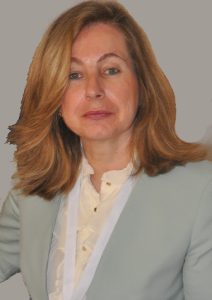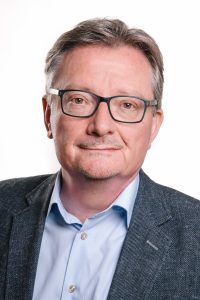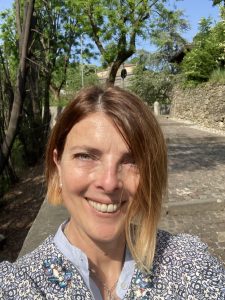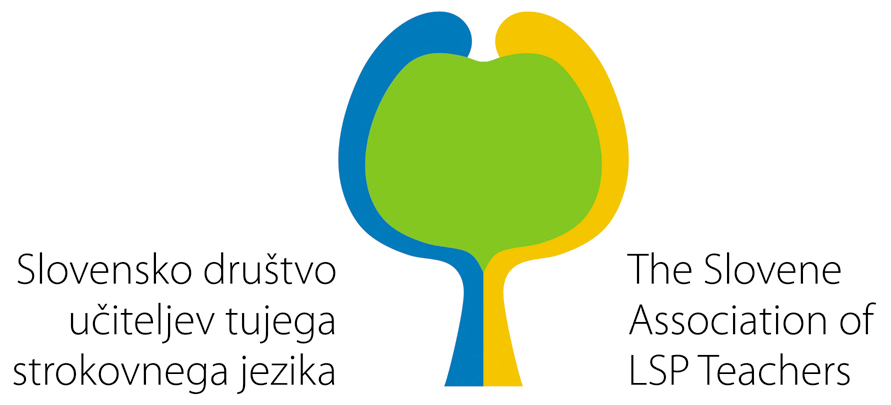FIRST CALL
3rd International Conference of the Slovene Association of LSP Teachers

Rimske Terme Thermal Resort, Slovenia
18–20 May 2023
Languages for Specific Purposes: Opportunities and Challenges of Teaching and Research
The Slovene Association of LSP Teachers (SDUTSJ) is pleased to announce their third international conference, which will take place in Rimske Toplice, Slovenia, from 18 to 20 May 2023. We are calling for proposals for a face-to-face conference for LSP teachers and researchers willing to establish professional cooperation.
Dedicated to LSP professional development and research, SDUTSJ managed to bring together LSP teachers and researchers from around the world in its previous 2017 and 2020 conferences. In the same spirit as the two previous highly acclaimed conferences, the 2023 conference will provide a unique forum for LSP experts and researchers ready to share their latest original research, their knowledge, and experience, as well as views and practices applicable to LSP teaching contexts.
With a view to encouraging LSP experts to meet and exchange ideas and views in an international forum, the conference also aims to consolidate collaboration with existing partners and to establish new links within the broader international research and teaching community. This event will afford an exceptional opportunity for renewing old acquaintances, making new contacts, networking, and facilitating partnerships across national and disciplinary borders.
The selected articles based on the contributions presented at the conference will be published in the Association’s online journal Scripta Manent (indexed in MLA, Erih+, DOAJ in LLBA) and in the conference proceedings in series Inter Alia.
Languages for Specific Purposes:Opportunities and Challenges of Teaching and Research
Conference topics
Submissions are welcome in the following areas of LSP:
- LSP genre-based research
- LSP multimodal texts
- LSP lexicology and lexicography
- LSP translation studies
- LSP intercultural studies
- LSP language policy
- LSP teaching/learning
- LSP curriculum and syllabus design
- LSP teaching and learning materials design
- LSP language teaching methodology
- LSP assessment and evaluation
- LSP teacher roles and education
- LSP information-communication technologies
Programme Committee
- Mateja Dostal, Slovenia (Conference Coordinator)
- Brankica Bošnjak Terzić, Croatia
- Denis Cunningham, Australia
- Alejandro B. Curado Fuentes, Spain
- Slavica Čepon, Slovenia
- Andreja Drašler, Slovenia
- Danijela Đorović, Serbia
- Sabrina Francesconi, Italia
- Nataša Gajšt, Slovenia
- Giuliana Garzone, Italia
- Tatjana Glušac, Serbia
- Šarolta Godnič Vičič, Slovenia
- Heike Juengst, Germany
- Violeta Jurkovič, Slovenia
- Joanna Kic Drgas, Poland
- Vita Kilar, Slovenia
- Melita Koletnik, Slovenia
- Jarek Krajka, Poland
- Roma Kriaučiūnienė, Lithuania
- Sara Laviosa, Italy
- Nives Lenassi, Slovenia
- Rachel Lindner, Germany
- Darja Mertelj, Slovenia
- Timea Nemeth, Hungary
- Darija Omrčen, Croatia
- Saša Podgoršek, Slovenia
- Jolanta Šinkūnienė, Lithuania
- David Tual, Great Britain
- Ana Vujović, Serbia
Organising Committee
- Andreja Drašler, Slovenia (Head of the Organising Committee)
- Mateja Dostal, Slovenia
- Vita Kilar, Slovenia
- Melita Koletnik, Slovenia
- Katja Kranjec, Slovenia
- Nives Lenassi, Slovenia
- Barbara Majcenovič Kline, Slovenia
- Darja Mertelj, Slovenia
- Alenka Plos, Slovenia
- Saša Podgoršek, Slovenia
- Polonca Svetlin Gvardjančič, Slovenia
- Katja Težak, Slovenia
Keynote speakers
Ana Bocanegra-Valle

Ana Bocanegra-Valle is a Senior Lecturer at the University of Cadiz (Spain) where she teaches Maritime English at graduate and postgraduate levels. Her main research interests include Maritime English, ESP/EAP methodology and education (mainly needs analysis and materials design), English for research publication purposes, and ESP/EAP discourse. She has been the Editor-in-chief of the LSP journal Ibérica for eight years and is at present Book Review editor for ESP Today and Spanish Journal of Applied Linguistics. She has published articles and book chapters in prestigious journals and publishing houses and has served as peer reviewer for a wide number of journals both in Spain and abroad. She is the head of the research group LaCAP (Languages applied to communication in academic and professional settings) and is at present participating in a national R&D+i project (Digital genres and open science) and an international Erasmus+ project (LSP-TEOC.Pro: LSP teacher education online course for professional development). Her latest books are Applied Linguistics and Knowledge Transfer: Employability, Internationalisation and Social Challenges (Peter Lang, 2020), and Ethnographies of Academic Writing. Theory, Methods, and Interpretation (co-edited, John Benjamins, 2021).
Jan Engberg

Jan Engberg is Professor of Knowledge Communication at the School of Communication and Culture, Section of German Business Communication, University of Aarhus, Denmark. He teaches general courses in text and genre linguistics and in philosophy of science as well as specialised courses in domain-specific translation, financial communication and change communication, with a focus upon German and Danish contexts. His main research interests are the study cognitive aspects of specialised discourse and the relation between specialised knowledge and text formulation. Much of his research is focused upon communication, translation and meaning in the field of law. However, especially with Carmen Daniela Maier he has also studied academic publishing as well as disseminating genres from a multimodal point of view. In the context of dissemination, concepts relevant for describing popularisation as a knowledge-communicative act (like the level of explanatory depth) are central and have been used for studying legal institutions popularising basic legal concepts as well as scientists popularising their own field in radio shows. He has published widely in the field and co-edited a number of books and special issues of international journals. Finally, he is co-editor of the international journal Fachsprache – Journal of Professional and Scientific Communication.
Peter Franklin

Professor Peter Franklin focuses on intercultural management and intercultural competence development in his teaching, writing and research at Hochschule Konstanz University of Applied Sciences, Germany, where he works on Asia- / Europe-oriented bachelor, master and MBA programmes. Peter Franklin is also Director of Extra-curricular Studies and a founding member of his university’s Konstanz Institute for Corporate Governance. He teaches at business schools in China, Germany, Switzerland and the U.K. In addition to his university work he has advised, trained and addressed professionals around the world working internationally. Peter’s latest book Global Fitness for Global People. How to Manage and Leverage Cultural Diversity at Work (2022) was co-authored with Helen Spencer-Oatey and Domna Lazidou; Intercultural Interaction. A Multidisciplinary Approach to Intercultural Communication (2009) was written with Helen Spencer-Oatey and the long-seller The Mindful International Manager. How to Work Effectively Across Cultures, a practical book for people working internationally, with Jeremy Comfort. His Intercultural Management. A Case-based Approach to Achieving Synergy and Complementarity (2016), a collection of case studies, was co-edited with Christoph Barmeyer.
Ken Hyland

Ken Hyland is an Honorary Professor at the University of East Anglia in the UK. He was previously a professor at University College London, the UEA and the University of Hong Kong and has taught in Sudan, Saudi Arabia, Malaysia, Papua New Guinea, England, Hong Kong and New Zealand. He is best known for his research into writing and academic discourse, having published 280 articles and 29 books on these topics with 70,000 citations on Google Scholar. His most recent books include a fourth edition of Teaching and Researching Writing (Routledge, 2022) and The Bloomsbury Handbook of Discourse Analysis (co-edited with Brian Paltridge and Lillian Wong, 2021). A collection of his work was published as The Essential Hyland (Bloomsbury, 2018). He is the Editor of two book series with Bloomsbury and Routledge, was founding co-editor of the Journal of English for Academic Purposes and was co-editor of Applied Linguistics.
Stefania M. Maci

Stefania M. Maci (PhD, Lancaster University, UK) is Full Professor of English Language at the University of Bergamo. She is Director of CERLIS (Research Centre on Specialized Languages), and member of CLAVIER (The Corpus and Language Variation in English Research Group), BAAL (British Association of Applied Linguistics), and AELINCO (Spanish Association of Applied Linguistics). She also serves on the executive board of AIA (Associazione Italiana di Anglistica). Her research is focused on the study of the English language in academic and professional contexts, with particular regard to the analysis of tourism and medical discourses. Recent publications include articles and the monographs English Tourism Discourse (2020); the co-edited volumes: with Cristina Hanganu-Bresch, Michael J. Zerbe and Gabriel Cutrufello The Routlege Handbook of Scientific Commuication (2022); with Larissa D’Angelo and Anna Maurauneen Metadiscourse in Digital Communication (2021); with Maurizio Gotti and Michele Sala Scholarly Pathways. Knowledge Transfer and Knowledge Exchange in Academia (2020).
Conference opening and closing
The conference starts on 18 May 2023 at 13:00. The conference close is scheduled for 20 May 2023 at 15:00.
Conference email: sdutsj.conference@gmail.com
Conference website: http://sdutsjconference.splet.arnes.si
Abstract submission
- Abstracts should be submitted via: https://linguistlist.org/confservices/EasyAbs/login.cfm
- Each participant may submit one abstract in authorship and a second one in co-authorship.
- Abstract length: 150–200 words
- For references please follow the APA 7.0 Citation Style (cf. also Scripta Manent).
Submission languages and language policy
It is recommended that abstracts are written in the language that the paper will focus on: English, German, Italian, French, or Slovene. The working languages of the conference are English, German, French, Italian, and Slovene. No interpreting services will be provided.
Proposal selection criteria
All proposals will undergo a double-blind peer review process. The criteria which will form the basis for peer review are originality and its relevance to the conference topics, the relationship between title and content, structural organisation, theoretical appropriateness, and clarity of claims.
All abstracts must be proofread.
Presentation policy
Please note that SDUTSJ strongly believes that conferences should provide opportunities for professional exchange: for giving and receiving feedback, in-depth discussions, and meeting colleagues with similar interests. Conferences are a space for dialogue. Therefore, we not only encourage discussions (5 min) following each paper presentation (15 min) but also require that papers should be presented only by their (co)authors. Non-author substitute presenters will not be allowed to present papers.
Key dates for submissions and registration
- abstract submissions open: 1 October 2022
- abstract submissions deadline: 30 November 2022
- notification about abstract acceptance: 20 January 2023
- early registration: 21 January–20 February 2023
- standard registration: 21 February–20 March 2023
- late registration (for non-speakers only): 21 March–20 April 2023
- publication of the draft conference programme: 15 April 2023
- submission of manuscripts: 2 October 2023
Registrations are possible until the vacancies are filled.
Conference fee
The conference fee includes conference materials, the book of abstracts, refreshments, and a certificate of attendance.
- Early bird registration (21 January–20 February 2023): €80
- Standard registration (21 February–20 March 2023): €100
- Late registration (21 March–20 April 2023): €120
The transaction is non-taxable as defined by Article 187 of Directive 2016/112/EC.
Payments can be made by bank (wire) transfer. Please use the following data:
Account holder:
- Name: SDUTSJ, The Slovene Association of LSP Teachers
- Contact address: Filozofska fakulteta, Aškerčeva 2, SI 1000 Ljubljana, SLOVENIA
- VAT No: 52645096
|
Use these bank data to submit payment:
|
|
- In the box “namen plačila” or “purpose of payment” please write “lsp-surname-2023” (e.g. “lsp-smith-2023”).
- All bank charges must be covered by the transmitter.
- Confirmation of registration will be confirmed upon receipt of payment.
Cancellation policy
- A 50% refund can be granted if notification of cancellation has been submitted before 20 April 2023. No refund is possible for requests submitted after this date.
- Refund requests will be processed after the conference and can be submitted to: sdutsj.conference@gmail.com
Publication of papers
Selected papers will be published in:
- Scripta Manent, the peer-reviewed journal of the Slovene Association of LSP Teachers. The journal is indexed in MLA, Erih+, DOAJ, and LLBA; http://scriptamanent.sdutsj.edus.si/ScriptaManent
- Inter alia, a series of peer-reviewed conference proceedings published by SDUTSJ; http://www.interalia.si/aktualno
Venue
The conference is located at the Business Wellness Spa Resort of Rimske terme (http://www.rimske-terme.si/en). Please arrange your accommodation directly with the hotel (barbara.pozin@rimske-terme.si). Upon booking, state that you are participants of the SDUTSJ conference.
The following rates have been arranged:
| Hotel**** |
Bed and breakfast (per person per night) |
Half board (per person per night) |
Full board (per person per night) |
| Double room | € 70 | € 80 | € 85 |
| Double room (single use) | € 85 | € 93 | € 100 |
- The price includes the use of swimming pools and saunas, and free parking.
- Tourist tax: € 2.50 per person/night
- Conference dinner: price TBA
- Phone: +386 3 574 20 00
How to get there
- By train to Rimske Toplice (e.g. the trip from Ljubljana takes 1 hour and 20 minutes, fare: € 6.60): http://www.slo-zeleznice.si/en
- By car (e.g. 1h and 30 minutes from Ljubljana)
- By hotel transfer: arrange transfer with the hotel upon booking
- By shuttle: contact the GoOpti transfer service well in advance for a convenient rate:
- https://www.goopti.com/en
Please feel free to circulate this call to any colleagues or contacts you think may be interested.
